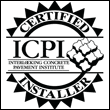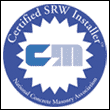 The 1st thing you’ll want to consider in all your pool projects is usually the water. Having pool water in a good chemical balance greatly reduces potential issues. I recommend taking a water sample to be processed by a licensed pool company. They can help you with what chemicals your pool needs more or less of, and give you details on the whys and hows. An alternative to this is to pick up some pool test strips, allowing you to test the water yourself. Remember: the water will tell you the health of your pool.
The 1st thing you’ll want to consider in all your pool projects is usually the water. Having pool water in a good chemical balance greatly reduces potential issues. I recommend taking a water sample to be processed by a licensed pool company. They can help you with what chemicals your pool needs more or less of, and give you details on the whys and hows. An alternative to this is to pick up some pool test strips, allowing you to test the water yourself. Remember: the water will tell you the health of your pool.
In addition to the necessary chemicals, you will need a general arrangement of pool tools like, a pool brush, pool basket, extension pole, pool vacuum, and hoses. These are all designed to help keep dirt, grass, leaves, and all other foreign objects out of the pool, and thereby keeping your pool cleaner.
The last thing, which generally requires professional help, is making sure your pool equipment (pump, filter, skimmer, drain, heater, etc.) are working properly. Maintaining your equipment is paramount for the longevity of any pool. While I don’t advocate frequent testing of your equipment, being aware of how your pool equipment is functioning goes a long way towards determining if there is a malfunction. If you come across a faulty piece of equipment, call your pool service provider or the contractor that installed it for the best support. The sooner its fixed, the sooner your pool will return to working order.
Every pool has individual needs and every project is unique, but if you can keep a good eye on your chemical levels, clean the pool of objects once a week, and maintain your equipment, then you should have a pool functioning in peak condition, allowing you to get the maximum amount of enjoyment out of your pool.








